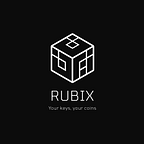How Blockchain Technology and NFTs could Revamp Customer Loyalty and Reward Programs?
In today’s business ecosystem, with uncertain economic conditions, rising customer acquisition costs, and the emergence of new competitors, only the businesses that ensure a loyal customer base will survive and come out as winners. Loyal customers are a good source of stable revenue and they help you improve your brand reputation, reach, and growth. As businesses understand the value of a loyal customer now more than ever, they have been using customer loyalty programs and reward programs to retain customers and grow the number of loyal customers. This is where blockchain technology and NTFs can help.
But first, what is the issue with the traditional customer loyalty program and how could NFTs help revamp customer loyalty and reward programs?
What are NFTs?
NFT stands for Non-Fungible Token. NFTs are a category of digital assets that have varying values and can be used in different ways: they can represent ownership of digital assets like rare artworks; they can represent limited edition goods like sneakers, or they can serve as rewards for completing tasks such as playing games and watching videos. NFTs provide authenticity and are the future of blockchain technology because they allow for things like virtual goods, decentralized gaming platforms, and cryptocurrency collectibles. Thus, the emergence of NFTs is allowing consumers and internet users to register their digital works through blockchain technology, a trustless distributed ledger, and convert them into a secure sellable asset.
Challenges in Conventional Customer Loyalty Programs:
Companies offer customer loyalty programs that include perks like discounts, exclusive access, and more to retain and build on loyal customers. However, in recent times, these programs have been less effective at maintaining consumer engagement, eagerness, and loyalty. This is mainly because of the complex and transactional nature of these programs. Moreover, the majority of these customer loyalty programs are designed with the company’s interests in mind, rather than the consumers.
For instance, a customer has to complete a purchase that he might not necessarily need in order to unlock some rewards. Also, with a lot of companies offering a lot of loyalty programs, customers find it difficult to be on top of these programs and thus fail to redeem the majority of points they may accumulate. These issues call the need for a better solution to streamline it, and this is what blockchain technology and NFTs bring to the table.
How can Blockchain Technology and NFTs Revamp Customer Loyalty Programs?
Ensuring a Transparent and Fair Loyalty System:
Blockchain will allow instantaneous creation of loyalty reward points across programs, vendors, and industries through a trustless environment using cryptographic proofs. Using this technology, companies can create loyalty tokens that are base on all types of rewards, including points. The existence of this loyalty token and unique identifiers are updated on each participant’s ledger and are made available across the network. NFTs for customers enrolled in a loyalty program could be fully personalized based on each customer’s preferences and liking. This allows for personalized free gifts and rewards. Moreover, tokenizing rewards will also build solid trust in customers that the companies cannot alter or cancel that reward. Thus, this system will be much more effective in gaining customer trust and engagement.
Exchangeability of Tokens:
Another important benefit of employing blockchain and NFTs to revamp customer loyalty programs is its ability to enable the exchange of loyal points. With blockchain, even the real-world items can be represented in digital form that can be converted into NFTs that have a unique value and can be easily stored on a wallet. A consumer enrolled in multiple loyalty programs of multiple organizations can easily exchange and send the loyal points across different loyal programs without the need for a middleman or clearinghouse. This way consumers can use their loyalty points more effectively. Rewarding consumers with NFTs of their preference will also enable instant transfer of these digital assets worldwide between two parties in near-real-time.
Improved Security and Data Privacy:
One of the major reasons why customer loyalty programs are failing recently is data privacy concerns. Most consumers are concerned about the security of the information they share upon signing up for a loyalty program and the security of their reward points online. This can be rectified with Blockchain. Blockchain creates an immutable and time-stamped distributed database entry of every single transaction ever made. This means records are irreversible and safe from fraud and any other manipulations. Since all rewards are tokenized, they have unique identities that are extremely difficult to copy.
Non-fungible tokens are revolutionizing customer loyalty programs. They help to create more compelling customer experiences and unlock new business models, thus addressing some of the most pressing pain points that burden the modern consumer today.
NFTs are growing in popularity and usage with their different use cases and they are fuelling the paradigm shift for the Internet defined by a set of open, trust-minimized, and decentralized networks and protocols. Thus NFTs, decentralized Web 3.0, and the underlying blockchain technology will create an entirely new internet infrastructure with increased privacy, security, and decentralization. At Rubix Network, we are leading the change in next-gen blockchain technology. We are the proud inventors of the PoH (Proof of Harvest) consensus, a mechanism that reduces carbon emissions by 100%. Our proofchain architecture enables the building of highly scalable, secure, decentralized applications with built-in privacy that can fit perfectly into the Web 3.0 ecosystem.
